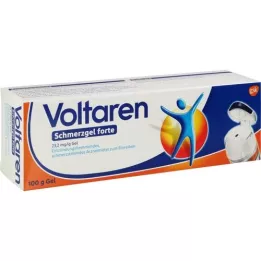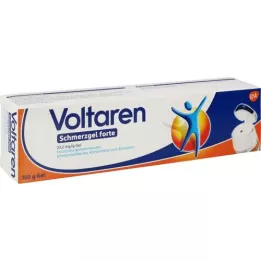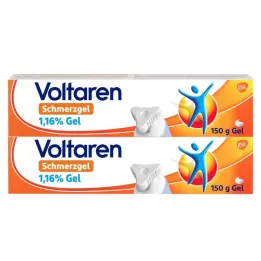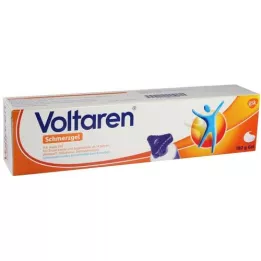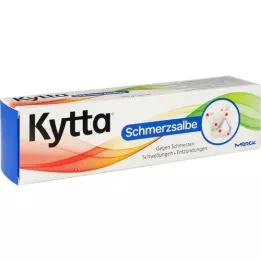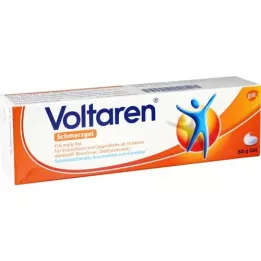
Diclac Dolo 25 mg coated tablets, 10 pcs
Proizvođači: Hexal AG
Model: 05954827
Doziranje: Überzogene Tabletten
Sadržaj: 10 St
Nagradni bodovi: 48
Dostupnost: Nema na skladištu
$15.37
iz Njemačkih ljekarni na Vašu adresu

Upute za korištenje Diclac Dolo 25 mg coated tablets, 10 pcs
Instructions for use for: DiClac Dolo 25 mg plated tablets, 10 pcs
DiClac Dolo 25 mg.Traft: Diclofenac potassium. Areas of application: analgesic and anti-inflammatory medicine for light to moderately strong pain.
For risks and side effects, read the package leaflet and ask your doctor or pharmacist.
Leaflet: Information for the User
Diclac® Dolo 25 mg plated tablets
Active substance: Diclofenac potassium
For adults and adolescents from 16 years
Read the entire leaflet carefully before you start taking this medicine because it contains important information.
This medicine is available without prescription. However, in order to achieve the best possible treatment success, DiClac Dolo must be applied correctly to 25 mg.
- Lift the package leaflet. You might want to read it again.
- Ask your pharmacist if you need more information or advice.
- If you notice side effects, contact your doctor or pharmacist. This also applies to side effects that are not indicated in this leaflet.
- If you feel better or even worse after 4 days, contact your doctor.
What is in this leaflet:
- What is Diclac Dolo 25 mg and what is it used for?
- What should you pay attention to 25 mg before taking Diclac Dolo?
- How to take Diclac Dolo 25 mg?
- What side effects are possible?
- How to keep Diclac Dolo 25 mg?
- Content of the pack and more information
1. What is Diclac Dolo 25 mg and what is it used for?
Diclac Dolo 25 mg is an analgesic and anti-inflammatory medicine from the group of so-called non-steroidal anti-phlogistika / anti-rheumatics (hereinafter abbreviated as "NSAR").
Applications: Symptomatic treatment of light to moderately strong pain.
If you feel better or even worse after 4 days, contact your doctor.
2. What should you pay attention to 25 mg before taking Diclac Dolo?
Diclac Dolo 25 mg must not be taken:
- if you are allergic to the active substance Diclofenac or one of the other ingredients of this medicine mentioned in Section 6
- if you have reacted in the past with asthma attacks, nasal mucosal swellings or skin reactions after taking acetylsalicylic acid or other non-steroidal NSAR
- for unexplained blood formation and blood clotting disorders
- with existing or past stomach / duodenal ulcer (peptic ulcer) or bleeding (at least 2 different episodes of proven ulcers or bleeding);
- in gastrointestinal bleeding or breakthrough (perforation) in the history associated with a previous therapy with non-steroidal anti-rheumatics / anti-phlogistika (NSAR)
- at cerebral bleeding (cerebrovascular bleeding) or other active bleeding
- in children and adolescents under 16 years
- for serious kidney or hepatic impairment
- if you have detected heart disease and / or brain icon disease, e.g. B. If you had a heart attack, stroke, or a small stroke (transitory ischemic attack, TIA) or if you have blockages of the veins to the heart or brain or you had to undergo an operation to eliminate or bypass this constipation
- if you have problems with your bloodstream or had (Peripheral arterial sealing disease)
- in the last three months of pregnancy
Warnings and Precautions: Please talk to your doctor or pharmacist before taking Diclac Dolo 25 mg.
Before you get Diclofenac, inform your doctor:
- if you smoke,
- if you are diabetic (diabetes),
- if you have angina pectoris, blood clots, high blood pressure, elevated cholesterol or triglyceride values.
Side effects can be minimized if the lowest effective dose is applied over the shortest time.
Diclac Dolo 25 mg should only be applied under strict balance of benefit risk ratio:
- for certain innate blood formation disorders (eg acute intermittent porphyria)
- for certain autoimmune diseases (systemic lupus erythematoses and mixing collagenosis)
A particularly careful medical monitoring is required:
- when they suffer from allegia, skin reactions to other drugs, asthma, hay fever, chronic nasal mucosal respiratory diseases or chronic respiratory respiratory diseases, as there is also an increased risk for the occurrence of hypersensitivity reactions for them when using DiClac Dolo 25 mg
Safety in the gastrointestinal tract: Quickly releasing oral dosage forms of Diclofenac such as DiClac Dolo 25 mg can have increased gastric intolerance, a particularly careful monitoring is therefore required. Without consultation with the doctor may
The maximum application time of 4 days with light up to moderately strong pain not exceeded.
If a longer-term therapy with diclofenac is required under medical supervision, the use of better gastric diculofenac formulation should be considered.
Simultaneous intake of DiClac Dolo 25 mg with other NSAR, including so-called COX 2 inhibitors (cyclooxygenase-
2-inhibitors) should be avoided.
Bleeding of the gastrointestinal tract, ulcers and breakthroughs (Perforations): bleeding of the gastrointestinal tract, ulcers and perforations, even with fatal output, were under all
NSAR reports. They occurred with or without previous warning symptoms or serious events in the gastrointestinal tract in the history at any time of therapy.
The risk of the occurrence of gastrointestinal bleeding, ulcers and breakages is higher with increasing NSAR dose, in patients with ulcations in the history, in particular with the complications or breakthrough (see section 2. "DiClac DOLO 25 mg must not be taken "), and in older patients. These patients
should start treatment with the lowest available dose.
For these patients and patients who require accompanying therapy with low-metered acetylsalicylic acid (ASS) or other medicines that can increase the risk of gastrointestinal diseases, a combination therapy with gastric mucosal protective medicaments (eg misoprostol or Proton pump inhibitor) are considered.
If you, especially at a higher age, have a history of side effects on the gastrointestinal tract, you should report any unusual symptoms in the abdomen (especially gastrointestinal bleeding), especially at the beginning of therapy your doctor or apother.
Caution is advised if you at the same time receive medicines that can increase the risk of ulcers or bleeding, such as: Oral and systemic corticosteroids, blood clotting drugs such as warfarin, selective serotonin reuptake inhibitors, which are used, among other things, for the treatment of depressive moods,
or thrombocyte aggregation inhibitor such as ass (see section 2. "Taking Diclac Dolo 25 mg with other medicines").
If it comes with you under DiClac Dolo 25 mg to stomach intestinal bleeding or ulcers, the treatment must be deducted.
NSAR, including Diclofenac, should be used in patients with a gastrointestinal disease in the prehistory (Colitis ulcerosa, Crohn's disease), as their condition could deteriorate (see section 4. "Which side effects are possible?".
Skin reactions: Under NSAR therapy, including Diclofenac, was very rarely about serious Skin reactions with redness and
Blowjob, some with fatal output reports (exfoliative dermatitis, Stevens-Johnson syndrome and toxic epidermal necrolysis / Lyell syndrome; s. Section 4). The highest risk of such reactions seems to be at the beginning of therapy, as these reactions occurred in the majority of cases in the first treatment month.
In the first sign of skin rashes, mucosal lesions or other signs of an overpricular reaction should
DiClac Dolo 25 mg discontinued and the doctor will be consulted immediately.
Effects at cardiovascular system: medicines like Diclac Dolo 25 MG may be associated with a slightly increased risk of cardiac attacks ("heart attack") or strokes. Any risk is more likely with high doses and longer lasting treatment.
Do not exceed the recommended dose or duration of treatment (4 days). If you have heart problems or a preceding stroke or think that you are a risk to these diseases
Could have (eg if they have high blood pressure, diabetes or high cholesterol values or smokers), they should discuss their treatment with their doctor or pharmacist.
Hepatic effects: Caution (discussion with the doctor or pharmacist) is before the beginning of a treatment of patients with booster disorders
Bed, as your condition could deteriorate under the therapy with Diclofenac. If DICLAC DOLO is taken 25 mg for a long period of time or repeatedly, a regular monitoring of liver function is attached as a precautionary measure. If clinical signs are detected for liver disease, you should immediately discontinue DiClac Dolo 25 mg.
Older patients: In older patients, adverse effects after application of NSAR, including Diclofenac, in particular occur, in particular
Bleeding and breakthroughs in the stomach and intestinal area, which may may be life-threatening.
Therefore, in older patients, a particularly careful medical monitoring is required. In particular, it is recommended that in frail grinding elderly patients or in elderly low body weight patients, the lowest effective dose is applied.
Other notes: For longer permanent administration of DiClac Dolo 25 mg, is a regular control of renal function as well as the blood count
necessary.
For prolonged use of painkillers, headaches can not be treated by increased doses of the medicine.
Ask your doctor about advice if you suffer from headaches despite the intake of DiClac Dolo 25 mg frequency!
Generally, the habitual intake of painkillers, especially in combination of multiple
Pain-stable active ingredients, for permanent kidney damage with the risk of renal failure (analgesics nephropathy) to lead.
Heavy acute hypersensitivity reactions (such as Anaphylactic shock) are very rarely observed. For the first signs of a hypersensitivity reaction after taking / administration of DiClac Dolo 25 mg, the therapy must be aborted. The symptoms corresponding, medically necessary measures must be initiated by expert persons.
If you simultaneously occupy medicines for inhibiting blood clotting, the doctor should praise the coagulation status
to be controlled.
Diclac Dolo 25 mg can temporarily inhibit the platelet aggregation. If you suffer from blood clotting disorders, the coagulation status should be carefully monitored by the doctor.
When taking / application of DICLAC DOLO 25 mg before operational interventions, the doctor or dentist should be consulted or informed.
A coated tablet corresponds to about 0.004 bread units (BE). The calorie value is 0.2 kcal per tablet.
Taking Diclac Dolo 25 mg together with other medicines: Inform your doctor or pharmacist if you take / apply other medicines, recently taken / applied / applied or intended other medicines, even if it is non-prescription medicines.
The effect of subsequently called drugs or Preparate groups can with simultaneous treatment with DiClac Dolo 25 mg are influenced by:
- Chinolon antibiotics occasionally reported on cramps, which may be due to the simultaneous application of quinolons and NSAR, including Diclofenac.
- Other NSAR and corticoids The simultaneous administration of DiClac Dolo 25 mg with other NSAR or with glucocorticoids increases the risk of gastrointestinal ulcers or bleeding.
- Anticoagulants Nsar may enhance the effect of blood coagulation inhibiting medicines such as warfarin. In addition, while taking blood coagulant drugs, the risk of bleeding may be increased.
- Thrombocyte aggregation inhibitor and selective serotonin resumption inhibitors (SSRI) Thrombocyte aggregation inhibitors such as acetylsalicylic acid and certain antidepressants (selective serotonin resumption inhibitors / SSRI) Can increase the risk of gastrointestinal bleeding (see section 2. "Warnings and Precautions").
- Anti-Diabetics clinical trials have shown that Diclofenac can be administered simultaneously with oral antidiabetics without influencing their clinical effect. However, there was a few hypo- and hyperglycemic reactions after administration of Diclofenac, which made an adaptation of antidiabetics metering necessary. Therefore, simultaneous therapy is recommended control of blood sugar levels.
- Methotrexat The administration of DiClac Dolo 25 mg within 24 Hours before or after administration of methotrexate can lead to an increased concentration of methotrexate in the blood and an increase in its undesirable effects.
- SampleCid medicines containing SampleCid can delay the excretion of Diclofenac. This can lead to an enrichment of Diclofenac in the body and strengthening of its unwanted effects
Taking Diclac Dolo 25 mg along with food and beverages: Taking Diclac Dolo 25 mg on meals reduces the recording of Diclofenac. It is therefore recommended,
Do not take the tablet or immediately after eating.
During the use of DiClac Dolo 25 mg, you should not drink alcohol as possible.
Pregnancy, lactation and procilability: If you are pregnant or breastfeeding, or if you suspect to be pregnant or intend to become pregnant, ask your doctor or pharmacist for advice before applying this medicine.
Pregnancy:
- If a pregnancy is detected during the use of DiClac Dolo 25 mg, then the doctor is notified.
- You are allowed to use DiClac Dolo 25 mg in the first and second pregnancy a third party after consultation with your doctor.
- In the last third of pregnancy Diclofenac may not be applied because of an increased risk of complications for mother and child at birth.
Latving: The active ingredient Diclofenac and its degradation products goes over in small amounts into the breast milk. Since adverse consequences
For the infant have not become known so far, a short-term application of the recommended dose in pain and fever will not be required to interrupt the breastfeeding generally.
Certificate of Consultancy: Diclac Dolo 25 mg belongs to a group of medicines (NSAR), which can affect the fertility of women.
This effect is reversible after discontinuation of the medicine (reversible).
Roadness and the ability to serve machines:
The active substance Diclofenac can occasionally cause central nervous side effects such as fatigue, dizziness, dizziness or occasional visual disturbances. Therefore, in individual cases, the ability to drive a motor vehicle and / or to operate machines can be limited. This applies even more in combination with alcohol.
Diclac Dolo 25 mg contains sucrose: Please take DiClac Dolo 25 MG therefore only after consulting with your doctor if you are known to suffer from any intolerance to certain sugars.
3. How to take Diclac Dolo 25 mg?
Always take this medicine as described in this leaflet or exactly after the one with hereM doctor
or pharmacist made agreement. Ask your doctor or pharmacist if you are not sure.
In general, the lowest effective dose required to relieve the symptoms should be applied over the shortest possible period.
The recommended dose is: adults and adolescents from 16 Years take at the beginning of 1 coated tablet (corresponding to 25 mg diclofenac potassium), after which 1 coated tablet coated every 4-6 hours. However, the maximum amount of 3 should be coated
Tablets (corresponding to 75 mg Diclofenac potassium) within 24 Hours not exceeded.
Type of application: Diclac Dolo 25 mg is associated with abundant fluid. To achieve the best possible effectiveness,
Should the coated tablets be taken neither nor immediately after the meal.
Duration of the application: Do not take DiClac Dolo 25 mg without medical or dental council no longer than 4 days with slight to moderately strong pain. In complaints that stop longer or aggravate, a doctor should be visited.
Please talk to your doctor or pharmacist if you have the impression that the effect of Diclac Dolo 25 mg is too strong or too weak.
If you take a larger amount of Diclac Dolo 25 mg than you should: as symptoms of overdose are disturbances of the central nervous system (dizziness, headache, hyperventilation,
Earritis (tinnitus), consciousness, cramping - in children also myoclonic cramps) as well as the gastrointestinal tract (nausea, abdominal pain, vomiting and diarrhea, bleeding) and functional disorders of the liver and kidneys possible. A specific antidote (antidote) does not exist.
If significantly more DICLAC DOLO 25 mg has been used as prescribed, medical help should be used immediately.
If you forget to take Diclac Dolo 25 mg: Do not take the double dose if you forget the previous ingestion. If you are unsure what to do, please talk to your doctor or pharmacist.
If you have further questions about the application of the medicine, ask your doctor or pharmacist.
4. Which side effects are possible?
Like all medicines, this medicine can also have side effects, but they do not have to occur each other.
The frequency information on side effects is based on the following categories:
- Very common: More than 1 treated from 10
- Frequently: 1 to 10 treated from 100
- Occasionally: 1 to 10 treated from 1,000
- Rarely: 1 to 10 treated from 10,000
- Very rare: less than 1 treated from 10,000
- Unknown: Frequency on the basis of the available data is not estimable
The list of adverse effects of the following undesirable effects includes all known side effects under treatment with Diclofenac, including those under highly dose long-term therapy for rheumatist.
For short-term application, these side effects can occur in low frequencies.
The following undesirable pharmaceutical effects must be taken into account that they predominantly dose-dependent
and interindividually different. The most frequently observed side effects involve the digestive tract.
Stomach / Twelve Nightherm ulcer (peptic ulcer), perforations (Breakthroughs) or bleeding, sometimes fatal, can occur, especially in older patients (see section 2. "Warnings and Precautions"). Nausea, vomiting, diarrhea, bloating, constipation, digestive complaints, abdominal pain, teery chair, bleeding, ulcerative stomatitis, mixing of colitis and crohn's disease (see section 2. "Warnings and Precautions") have been reported according to application. Less often gastric mucosal inflammation were observed.
Quick-release oral dosage forms of Diclofenac like Diclac Dolo 25 mg can have increased stomach intolerance. Edema, hypertension and heart failure were reported in connection with NSAR treatment, including Diclofenac.
Medicines like DiClac Dolo 25 mg may be slightly increased with a slightlythe risk of cardiac attacks ("heart attack") or strokes.
Infections and parasitic diseases: very rare: was the symptoms of one infection under the use of Diclofenac
based meningitis (aseptic meningitis) such as strong headaches, nausea, vomiting, fever, neck stiffness or
Consciousness observed. An increased risk seems to exist for patients already in certain autoimmune diseases
(Systemic Lupus Erythematodes, Mixed Collagen) suffer.
Diseases of the blood and lymphatic system: very rare: Disorders of blood formation (thrombocytopenia, leukopenia, anemia, including hemolytic and aplastic anemia, agranulocytosis).
First signs can be: fever, sore throat, superficial wounds in the mouth, flu-like discomfort, strong pollution, nosebleeds and skin bleeding, disorders of the immune system:
- Frequently: Hypersensitivity reactions such as rash and skin yewiling
- Occasionally: Hives (urticaria)
- Rare: Hypersensitivity reactions (including low blood pressure and shock)
- Very rare: severe general hypersensitivity reactions. They can express themselves as: facial edema, tongue swelling, laryngeal swelling with narrowing of airways, air not, heart hunt; Blood pressure down to the threatening shock. When one of these phenomena, which can already occur in first-time use, medical help is required.
- In these cases, the medicine must be deducted and the doctor to visit.
- Very rarely allergic inflammation of blood vessels (vasculitis) and the lungs (pneumonitis) Observed.
Psychiatric diseases: common: irritability
Very rare: depression, insomnia, anxiety, nightmares, perception disorder (psychotic reactions)
Diseases of the nervous system:
- Very rare: sensation disturbances, memory disorders, cramps, tremors, flavoring, disorientation, stroke (apoplex) eye diseases
Diseases of the ear and the labyrinth: very rare: ear noises (Tinnitus), temporary hearing disorders
Heart diseases: very rare: palpitations (palpitations), Water restrictions (edema), chest pain, heart muscle weakness (Heart failure), heart attack
Vascular diseases: very rare: hypertension (hypertension), Inflammation of blood vessels (vasculitis)
Diseases of the respiratory tract, the chest room and the mediastinum:
- Rare: asthma (including respiratory distress)
- Very rare: pneumonia (pneumonia)
Diseases of the gastrointestinal tract:
- Very common: nausea, vomiting, diarrhea (diarrhea), Minor gastrointestinal blood losses that can cause anemia in exceptional cases.
- Often: indigestion (dyspepsia), abdominal pain, flatulence, abdominal cramps, appetite (anorexia), Gastrointestinal ulcer (with or without bleeding or breakthrough)
- Occasionally: vomiting of blood (hematemesis), bloody diarrhea (hemorrhagic diarrhea), teery chair
- Rare: gastritis (gastritis)
- Very rare: complaints in lower abdomen, such. B. Colitis (colitis), bleeding colon inflammation (Hemorrhagic colitis), reinforcement of a Crohn's disease / ulcerative colitis (certain thickness inflammation associated with ulcers), constipation, inflammation of the oral mucosa (Stomatitis), tongue inflammation (glossitis), disease of esophagus (esophageal disease), membrane-like intestinal constrictions (intestinal strictures), inflammation of the pancreas (Pancreatitis)
Note: If it comes to stomach intestinal bleeding or ulcers, the treatment must be deducted.
Liver and bile diseases:
- Often: enzymer increase (transaminase increase)
- Occasionally: liver damage, especially for long-term therapy, acute liferitis with or without jaundice (very rarely very difficult to fulminant, AUCh without progress)
- Very rare: liver disease associated with a decay of liver cells (liver cellnecrosis), liver failure
Diseases of the skin and subcutaneous tissue:
- Very rare: rash with blistering, eczema, inflammatory skin extraction (erythema), heavy skin reactions such as rash with redness and blistering (eg erythema multiforme, stevens-johnson syndrome, toxic epidermal necrolysis / lyell syndrome, dermatitis exfoliativa), Light hypersensitivity (photosensitivity reaction), skin bleeding (Purpura), allergic skin bleeding (allergic purpura)
Note: At the first sign of the symptoms mentioned, treatment should be discontinued and the doctor should be consulted immediately.
Diseases of kidneys and urinary tract: very rare: acute kidney failure, discoloration of urine (hematuria), departure of proteins in urine (proteinuria), kidney damage (Nephrotic
Syndrome, interstitial nephritis, papilla necrosis)
General diseases and complaints at the administration site:
- Occasionally: liquid deposits (edema), especially in patients with high blood pressure or impaired renal function
- Very rare: deterioration of infectious inflammation (eg development of necrotizing fasciitis).
This may be related to the mechanism of action of non-steroidal anti-phlogistics. If during the application
Recommendation from DiClac Dolo 25 mg signs of an infection or worse, the patient is therefore recommended to visit the doctor immediately. It should be considered whether the indication is present for antiinfective antibiotic therapy.
If you notice side effects, contact your doctor or pharmacist. This also applies to side effects that are not indicated in this leaflet.
5. How to keep Diclac Dolo 25 mg?
Keep this medicine inaccessible to children.
You may not use this medicine after the expiry date specified on the container.
The expiry date refers to the last day of the specified month. Storage conditions: Store not over 30 ° C.
Store in the original packaging to protect the content from moisture.
Do not dispose drugs in the wastewater or household waste.
Ask your pharmacist how to dispose of the medicine if you do not use it anymore. You help to protect our environment.
6. Content of the pack and further information
What DiClac Dolo contains 25 mg: The active ingredient is Diclofenac potassium 25 mg per coated tablet.
The other ingredients are: tricalcium phosphate, carboxymethyl starch sodium (type A), microcrystalline cellulose, iron (III) oxide (E 172), macrogol (8000), magnesium stearate, cornstarch, povidone (K 30), sucrose, high-dispersed silica, talc , Titanium dioxide (E 171).
Like Diclac Dolo 25 mg looks and content of the pack: reddish coated tablet
Packs of 10 tablets and 20 tablets.
Not all pack sizes may be placed on the market.
Pharmaceutic entrepreneur:
Hexal AG
Industriestraße 25
83607 Holzkirchen
Telephone: (08024) 908-0
Fax: (08024) 908-1290
E-mail: [email protected]
Manufacturer:
Salutas pharma GmbH,
A company of Hexal AG
Otto-von-Guericke-Allee 1
39179 Bar life
This information information was last
Revised in December 2013.
Source: Information of the leaflet
Status: 10/2014
For risks and side effects, read the package leaflet and ask your doctor or pharmacist.
Recenzije lijekova
Nema recenzija za taj artikl.
Napišite recenziju
Popularno u Bol & upala
-34% 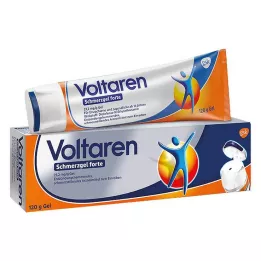

VOLTAREN Gel protiv bolova forte 23,2 mg/g, 120 g
VOLTAREN Schmerzgel forte 23,2 mg/g
$17.73 $26.75
-43% 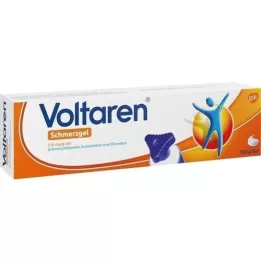

VOLTAREN Gel boli M. Blue Comfort Trehl., 150 g
VOLTAREN Schmerzgel m.blauem Komfort-Drehverschl.
$14.76 $25.99

